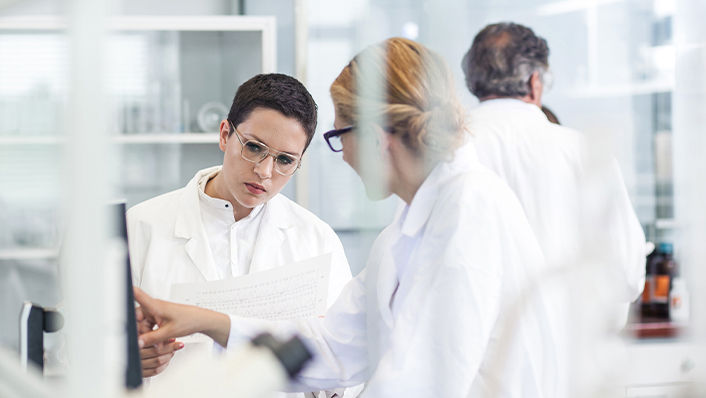The Art of Process Development
Coordination between two U.S.-based sites supports seamless scale-up for fine chemical manufacturing

The vast quantities of pharmaceuticals on store shelves reveal the scale of manufacturing needed to produce molecules that make our quality of life possible. What’s less visible is the complex structures of the molecules themselves.
Manufacturing these molecules safely and efficiently at scale involves a highly optimized series of steps designed by experts in process development—the art and science of carrying a series of chemical reactions to make these molecules from the lab bench to the manufacturing plant.
At Grace’s Fine Chemical Manufacturing Services (FCMS), coordination between the company’s two U.S.-based facilities supports the science of process development. Established collaborations between chemists, engineers, and operations experts at each site support the art. Process development teams at Grace’s FCMS can optimize customers’ existing processes before taking them into commercial production. The teams can also design and scale up a synthetic route to building a customer’s target molecule.
Integration within and across sites
Each of Grace’s FCMS sites has facilities to support a customer at every stage of product development and production, from R&D to scale-up to commercial production. The manufacturing network has kilo labs, pilot plants, and full-scale manufacturing facilities. Vital to successful process development at Grace’s FCMS is the connection between chemists, engineers, and plant operators at every scale of production.
Process engineers and plant operators step into research labs with their chemist colleagues to observe features of a synthesis that make a process unique. Information about a reaction mixture’s color, crystallization behavior, or physical attributes is key to rapidly adapting a process for the pilot plant. Process development chemists also analyze small-scale reactions’ corrosivity, heat production, and by-product formation, among other physical features, to ensure that the same reactions can be run safely at a larger scale.
When process development involves combining molecular building blocks to make a target molecule, Grace’s FCMS sites can work in parallel or in tandem to streamline manufacturing. For example, one site can develop a process to manufacture regulatory starting materials that will become the building blocks of an active ingredient, while another site can incorporate that background knowledge into the manufacturing process for the target molecule itself.
Contact us to learn more about working with Grace’s FCMS for process development of your active pharmaceutical ingredient, reaction intermediate, regulatory starting material, agrochemical, or specialty catalyst.